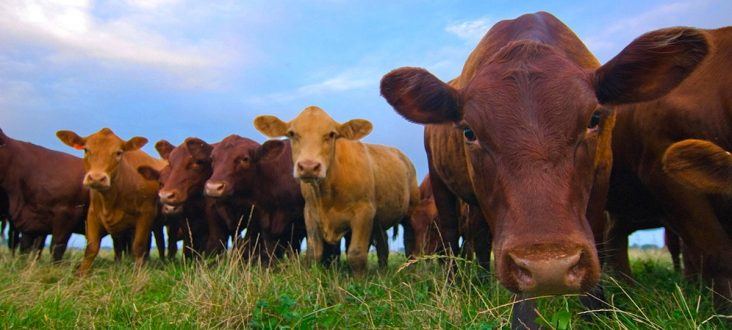Shane Gadberry appointed director of Livestock and Forestry Research Center near Batesville
by January 18, 2022 10:45 am 893 views

After 25 years as an extension livestock specialist for the University of Arkansas System Division of Agriculture, Dr. Shane Gadberry has been appointed resident director of the Livestock and Forestry and Research Station near Batesville. It will allow him to continue to do research about beef production in the Natural State.
The Livestock and Forestry Research Station is one of six research stations operated by the Arkansas Agricultural Experiment Station, the research arm of the Division of Agriculture. The division also operates five research and extension centers, numerous other research sites and extension offices in all 75 Arkansas counties.
Gadberry succeeds Don Hubbell, who retired as director of the Batesville station in early 2022.
He earned bachelor’s, master’s and doctoral degrees in animal science at the University of Arkansas. He has been an extension beef cattle specialist since 1997, was promoted to assistant professor in 2004, associate professor in 2010 and to full professor in 2017.
“We are thrilled to attract Dr. Gadberry to this new role,” said Jean-François Meullenet, senior associate vice president for agriculture-research and director of the Arkansas Agricultural Experiment Station. “Shane has done a lot of work on the Livestock and Forestry Research Station over the years, and he was an obvious choice to fill this position. I know Don Hubbell is leaving the station in great shape and I look forward to Dr. Gadberry’s leadership.”
“Dr. Gadberry brings a wealth of experience to the station at Batesville,” said Nathan McKinney, associate vice president for agriculture-research and assistant director of the Agricultural Experiment Station. “I am confident that our staff and stakeholders will be very happy with his leadership.”
Gadberry said his experiences at the Batesville station over the years convinced him that it has the infrastructure to expand research.
“The station provides an abundance of resources that can support our research faculty as they ask the relevant questions, design a program and find answers that will benefit Arkansas beef producers,” he said.
The Livestock and Forestry Research Station has 3,042 acres, including a 1,250-acre beef cattle unit. Research programs have focused on developing and identifying fescue tolerant beef cattle using DNA mapping and epigenetics. Researchers are also evaluating the use of forages and growth-promoting technology for stocker calf production. Gadberry said he envisions these programs to continue, providing beef producers with new information and technology to meet the challenges of the industry.
He also plans to encourage more Agricultural Experiment Station researchers to take advantage of the station’s resources.
“I’d like to see more faculty bringing new research and technology programs here,” he said. “And I want to complement the research with more field demonstrations so that producers and others in the beef industry can see what we’re doing and how it can benefit them.”
Gadberry said he also wants to be an advocate for forestry research on the station’s approximately 2,000 acres of forestland. Ongoing research in this area includes investigating multiple objective management of hardwood forests, improving health and productivity of upland hardwoods, management of loblolly and shortleaf pine, and improving forest habitat for upland wildlife species.
“The work is about advancing knowledge and growth in Arkansas’ beef and forestry industries and economies,” he said.
